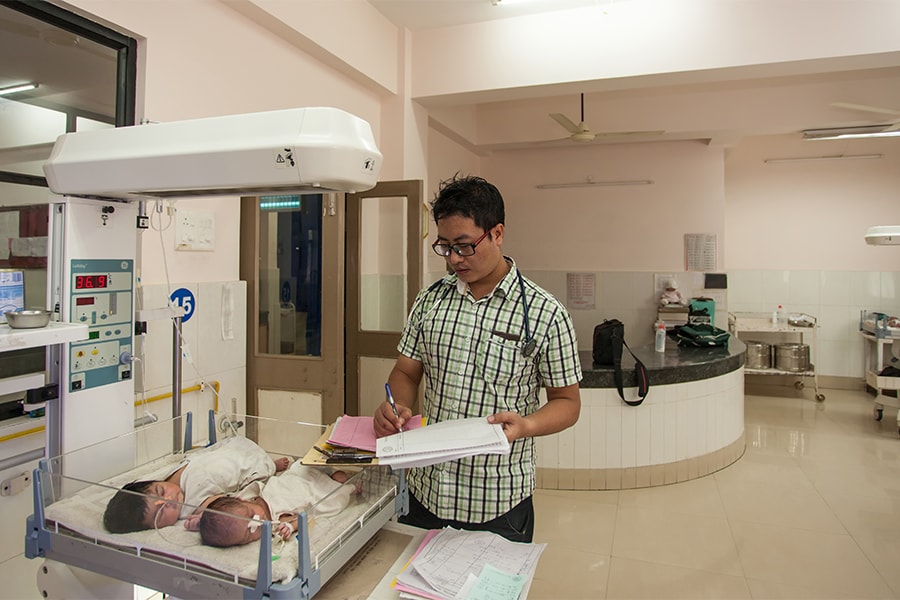
Budget 2017: Jaitley's strong dose gives a boost to health care sector
FM announces measures to widen availability of essential drugs across the country and reduce the cost of life-saving drugs; emphasises on plan to eliminate dreadful diseases
 Image: Travel Stock / Shutterstock, Inc. (For illustrative purposes only)
Image: Travel Stock / Shutterstock, Inc. (For illustrative purposes only)
The health care sector got due significance in the Union Budget 2017 presented by Finance Minister (FM) Arun Jaitley on Wednesday. He announced initiatives to widen the availability of essential drugs across the country and reduce the cost of life-saving drugs – measures that are expected to bring relief to the sector, especially in rural India. Jaitley also announced the government’s action plan to eliminate diseases like Kala Azar (Visceral leishmaniasis), Filariasis, measles and tuberculosis over the next few years.
Also, to bring in reforms in medical education in the country, the FM announced 5,000 new postgraduate seats in medicine, besides an initiative to upgrade 1.5 lakh health care centres in the country. Jaitley also announced the decision to set up two new All India Institute of Medical Sciences (AIIMS) in two states - Gujarat and Jharkhand.
The FM also focussed on sanitation as the next big thing and increased the rural sanitation allocation that covers up to 60 percent of the population now. “The FM’s budget clearly focuses on improving health care access for the less privileged and on ‘preventive and wellness’, both of which are encouraging. The target of transforming 1.5 lakh health sub-centres into health wellness centres is the need of the hour for Indian citizens,” says Anjan Bose, secretary general, NATHEALTH.
“Many of the targets set by the government for health care are welcome and so is the focus on wellness, creating more clinical staff and leveraging existing assets. However, we need to see what is the real extra allocation for making these announcements happen… would have appreciated a comment on plan for universal health care and infrastructure status,” says Nilaya Varma, partner and head, health care, KPMG in India.
But are the measures enough?
Currently, India ranks very low on basic health parameters. As per data collated by Quadria Capital, approximately 400 million people do not have access to essential health services in the country and the problem is even more acute in rural India. Currently, over 70 percent of the population is based in rural sector of which 60 percent are poor, 35 percent can be categorised as middle-class and the remaining 5 percent to be rich. Rural sector accounts for 70 percent of communicable diseases and surprisingly 50-70 percent of non-communicable diseases.
“There are no structural announcements for the health care sector with the allocation increasing by just over 10 percent. Announcements are mainly in the nature of incremental steps targeted towards access and affordability, including proposed changes in pharmaceutical and medical devices regulations. Abolition of FIPB is a big positive and will help attract investments,” says Sunil Thakur, chief operating officer, Quadria Capital.
Health care in India poses to be a big challenge even when compared to some of the trailing developing nations. Consider this: India has just over 0.9 beds per 1,000 people, which is abysmally low when compared to a world average of around four hospital beds per 1,000 people – a data that points to the inadequate public health system in the country. As per NATHEALTH, decades of low spending on the health sector has resulted in massive deficiencies in health infrastructure and a shortage of qualified health care providers. Public health care facilities do not cover the country as extensively as they should and most of them are poorly equipped and understaffed, while the few relatively better ones are overcrowded and the problem is aggravated by unavailability of secondary or tertiary care services in rural areas.





